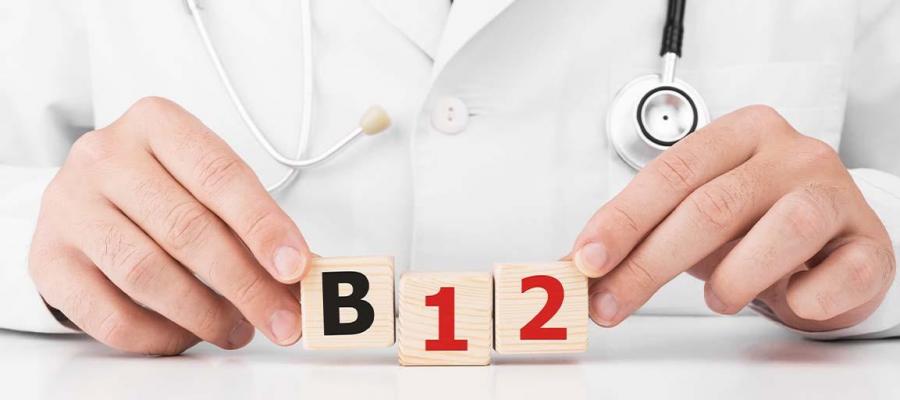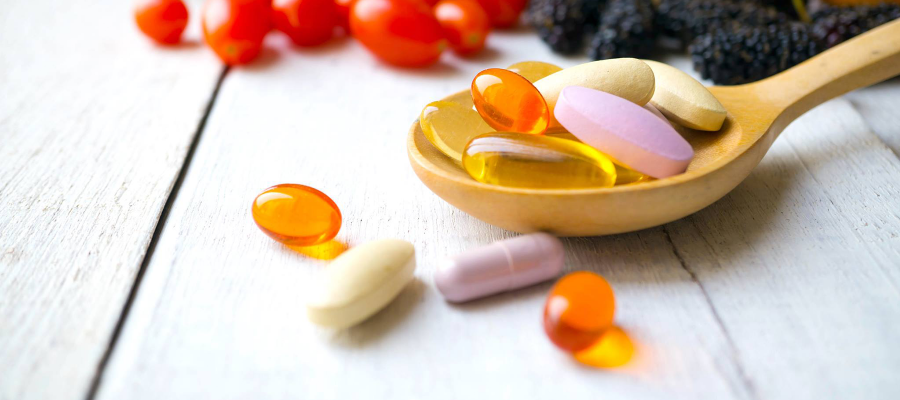What is Vitamin B12?
Vitamin B12 plays a key role in many processes in the body. The water-soluble vitamin is important for the production of red blood cells and cell division. Vitamin B12 supports the synthesis of nerve cells and has a positive effect on the function of the nervous system. The intrinsic factor is an important precondition of the body being able to take up vitamin B12. This is a protein synthesized in the stomach.
Vitamin B12 can actually also be taken up “passively”. 5-10 micrograms of the vitamin is excreted in bile. 3-5 micrograms of that is reabsorbed by the liver where a small reserve is also found. That’s why deficiencies are only observed in vegetarians, say, after many years.
Why do we use vitamin B12 and what are the challenges?
Vitamin B12 has many diverse functions in the body and is above all important for the nervous system and blood formation. Furthermore, it is responsible for forming and regenerating the cells of the body, energy metabolism and the metabolism of the amino acid homocysteine. Its significance for vitamin B12 has long been underestimated. In recent bariatric guidelines, the ASMBS* recommends 1000 µg daily.
For whom is a good intake of vitamin B12 particularly important?
People who have had weight loss surgery, such as a gastric bypass or a sleeve gastrectomy, have to take particular care to ensure a good intake of vitamin B12. Background: The intrinsic factor needed to absorb vitamin B12 is produced in the stomach. If part of the stomach has been removed during weight loss surgery, only a small amount of this protein can be produced. Furthermore, acid blockers – antacids – are often prescribed post-surgery, which impedes the absorption of vitamin B12 even more.
Who is in the risk group?
Vegetarians and vegans may also find it hard to get their daily requirements, as the main sources of vitamin B12 are missing from their diet. An impaired ability to absorb vitamin B12 can also lead to deficiency. This can be provoked by chronic gastrointestinal disease, say. Emotional stress, such as fear, worry and grief, consumes a lot of vitamin B12. Pregnant women also need more vitamin B12. And the bariatric patients must not be forgotten.
What are good sources of vitamin B12?
Animal products, like meat, fish, seafood, eggs and dairy products, are good sources of vitamin B12. Sauerkraut, fermented soy products, shiitake mushrooms, root and tuber vegetables, algae and chlorella are all vegetable sources. However, they only contain traces of vitamin B12. Moreover, the vitamin content in vegetable sources varies hugely and it’s very hard to meet the daily requirement with them.
To be on the safe side, vitamin B12 intake should be closely monitored. In the event of a deficiency, it may be worthwhile complementing a multivitamin and calcium supplement with a vitamin B12 supplement.











